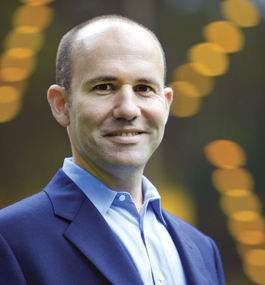The expression of confidence is intimately tied up with leadership. Would-be leaders are careful to present a confident face because it helps gain them credibility and convince others that they know what they are doing.
When George W. Bush faced John Kerry in their first Presidential debate in 2004, Bush criticized Kerry for having vacillated on the war in Iraq. “I just know how this world works,” Bush declared. “And in the councils of government, there must be certainty from the U.S. President.” Even those who may have disagreed with Bush’s policies may nevertheless support this view. In his profile of President Barack Obama, Michael Lewis put it this way: “After you have made your decision, you need to feign total certainty about it. People being led do not want to think probabilistically.” Continue reading




![iStock_000008266083Small[1]](http://www.issg.net/wp-content/uploads/2014/09/iStock_000008266083Small1-150x139.jpg)

 By Andy Molinsky
By Andy Molinsky by Amy Gallo
by Amy Gallo